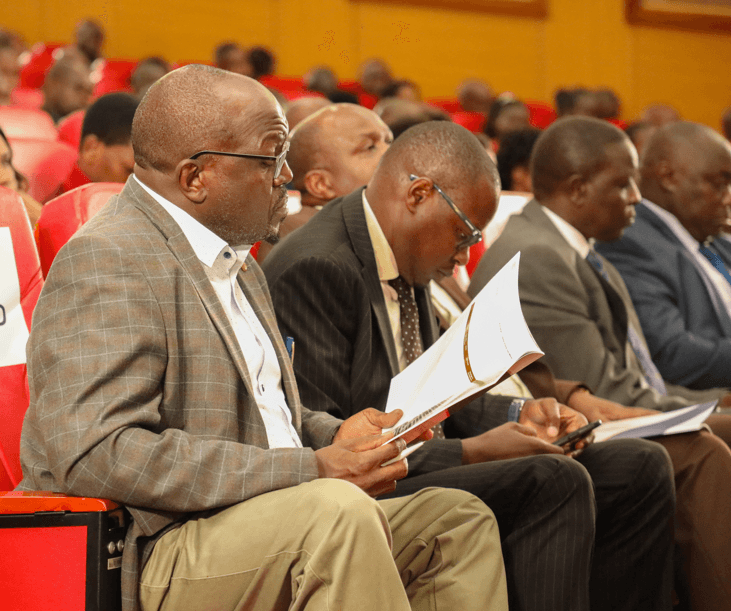We're loading the full news article for you. This includes the article content, images, author information, and related articles.
Sweeping changes to Kenya's pension and tax framework aim to enhance financial security for retirees while addressing long-standing challenges in the sector. The reforms, outlined in the Finance Bill 2025, introduce significant tax exemptions and administrative adjustments.

Nairobi, Kenya – The Kenyan government is implementing significant reforms to its pension and tax framework, seeking to redefine retirement planning and provide relief to workers amidst economic pressures. The Finance Bill 2025, which has been a focal point of public debate, introduces a series of measures aimed at modernising the pension system and ensuring the financial stability of retirees.
A key proposal within the Finance Bill 2025 is the expansion of tax exemptions on pension and gratuity payments for both public and private sector retirees. This move is a substantial departure from previous regimes that taxed certain pension payouts, creating disparities across different schemes. The government's intention is to allow retirees to enjoy their post-work years without the burden of additional tax deductions on their pension income.
Kenya's pension system has historically faced challenges, including a fragmented legal framework, exclusion of informal workers, inadequate benefits, and difficulties with portability across schemes. The government operationalised the Public Service Superannuation Fund (PSSF) in 2021 as a contributory pension scheme for teachers, civil servants, and disciplined services personnel, moving away from a non-contributory system. The Commission on Administrative Justice (Office of the Ombudsman) has previously called for a comprehensive overhaul of the pension system to address delays and injustices, noting over 674 complaints against the Pensions Department between 2012 and 2023.
The Finance Bill 2025 proposes several strategic measures to sustain and strengthen ongoing pension reforms. These include the complete separation of governance between the Public Service Superannuation Scheme (PSSS) and the non-contributory pension scheme, alongside enhancing transparency and accountability. The government also plans to modernise public service pension administration through digitisation and re-engineering of management systems. An actuarial valuation will be undertaken to ensure the long-term sustainability of pension benefits.
The Tax Laws (Amendment) Act 2024, effective December 27, 2024, introduced reforms to address economic challenges, including an increase in the tax-free pension contribution limit. This limit was raised by 50 percent, from KES 240,000 annually (KES 20,000 per month) to KES 360,000 annually (KES 30,000 per month), allowing Kenyans to save more for retirement without immediate taxation on that amount.
Pension fund managers have largely welcomed the proposed tax exemptions, noting their potential to boost retirement savings and improve the financial security of retirees. President William Ruto, during the 60th Labour Day celebrations on Wednesday, May 1, 2025, confirmed that both pension and gratuity payments would be exempt from taxation. This move is seen as a powerful incentive to save, potentially unlocking a new wave of uptake in private pension products, especially among SMEs, gig economy workers, and urban professionals.
While the reforms are largely seen as beneficial, critics may argue that foregoing tax on pensions could reduce government revenue at a time of mounting fiscal pressures. However, proponents suggest that the broader economic logic supports the reform, as a more robust pension system could deepen capital markets. The implementation speed and clarity, along with employers' capacity to adapt and public awareness, will be crucial for the actual impact of these changes.
Previous controversial tax plans, such as those in the Finance Bill 2024, led to widespread protests and were eventually withdrawn by the President. This highlights the sensitivity of tax policy changes and the need for careful consideration of public sentiment and economic impact.
One area of ongoing discussion is the proposed removal of certain pension and income tax reliefs under Section 8 of the Income Tax Act. This could potentially undermine retirement income security for some, despite the overall aim of modernising the system. The exact fiscal implications of these changes, particularly the long-term sustainability of automatic cost-of-living adjustments to pensions, will require thorough actuarial valuation.
The Finance Bill 2025 is currently undergoing legislative processes. The Tax Laws (Amendment) Act 2024, which introduced several pension reforms, became effective on Friday, December 27, 2024. Further adjustments to NSSF contribution limits are expected in February 2025, marking the third phase of implementation.
Stakeholders will be closely watching the finalisation and implementation of the Finance Bill 2025, particularly regarding the clarity on timelines, costs, and safeguards for retirees. The government's commitment to digitising pension processes and streamlining bureaucratic procedures will be key to addressing historical delays and injustices. The impact on domestic resource mobilisation and the potential for a wealth tax on high-net-worth individuals, as proposed by the National Taxpayers Association, also remain areas of interest.
Keep the conversation in one place—threads here stay linked to the story and in the forums.
Sign in to start a discussion
Start a conversation about this story and keep it linked here.
Other hot threads
E-sports and Gaming Community in Kenya
Active 9 months ago
The Role of Technology in Modern Agriculture (AgriTech)
Active 9 months ago
Popular Recreational Activities Across Counties
Active 9 months ago
Investing in Youth Sports Development Programs
Active 9 months ago